
By Drew Dietsch
| Published
“…sometimes he found it difficult not to believe that they were living in a future that had already taken place, and was now exhausted.” – J.G. Ballard
The future is something we are constantly thinking about as humans. Not in a flippant “what’s for dinner tonight?” way. I’m talking about The Future. Our dreams and nightmares about where civilization, society, technology, and humanity are all heading.
And right now, I have to say The Future feels grim. One of the biggest factors in this dreadful feeling so many people are having about the future boils down to a growing and never more apparent division between the rich and the rest of us.
It’s hard not to see a very select few people at the top are making life miserable for all of us beneath them.
Obviously, this isn’t a problem that cropped up overnight and plenty of great pieces of art have explored the warring history of the classes.
But, there’s one story that has been eating away at me ever since I declared it my #1 movie of 2016. A movie that has only become more powerful and terrifying with each passing year. A brutal, dark, absurd, and unpleasant science fiction tale that makes the perfect pairing with our world’s own seeming slide into a maddening dystopia.
And Loki’s in it! Naked!
High-Rise
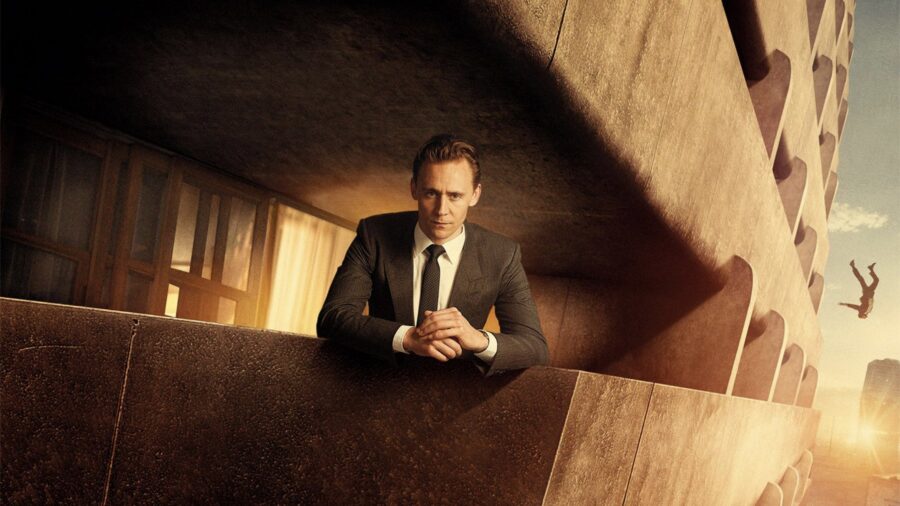
This is High-Rise, a movie everywhere will tell you came out in 2015 but those are all film festival dates that don’t count. The wide release was in 2016. It’s a 2016 movie. IMDb and Wikipedia can get bent.
High-Rise, the 2016 movie, is based on the 1975 novel by J.G. Ballard. Ballard was mostly known for writing post-apocalyptic and dystopian fiction that dealt with ideas about societal decay and the base natures of human beings.
In High-Rise, the story centers around Robert Laing, a new tenant in a modern apartment complex that offers everything one needs to exist in present day living. For example, there’s an entire floor of the building that’s a supermarket so residents don’t even need to leave to do their shopping.
It becomes clear that the building is heavily divided by class and this is purposefully maintained by the different floors, with the exorbitant rich populating the higher floors and the poorer tenants occupying apartments below.
Things Fall Apart
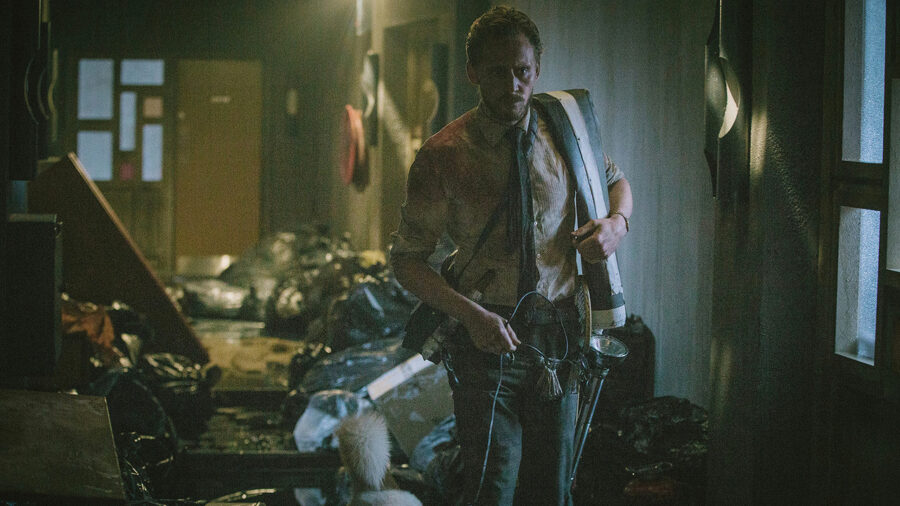
As the story progresses, the inhabitants of the building begin experiencing power outages as they become more and more dependent on the building for their daily lives. People stop going to their jobs, parents stop sending children to school, and there seems to be an entire civilization forming within the high-rise that caters to the base drives of humanity.
All of this is laid out with the very clear metaphor of the high-rise itself. As this social apocalypse escalates, the decadent rich continue to live on the higher floors and even raid the lower floors for supplies and to assault poor tenants in the dark during outages.
When the time came to turn Ballard’s novel into a movie, writer Amy Jump and director Ben Wheatley made a very conscious and integral choice in adaptation. Ballard’s novel gives no definitive year for the events that take place, but it’s supposed to be seen as a very near future as part of its cautionary tale.
The Future Already Happened
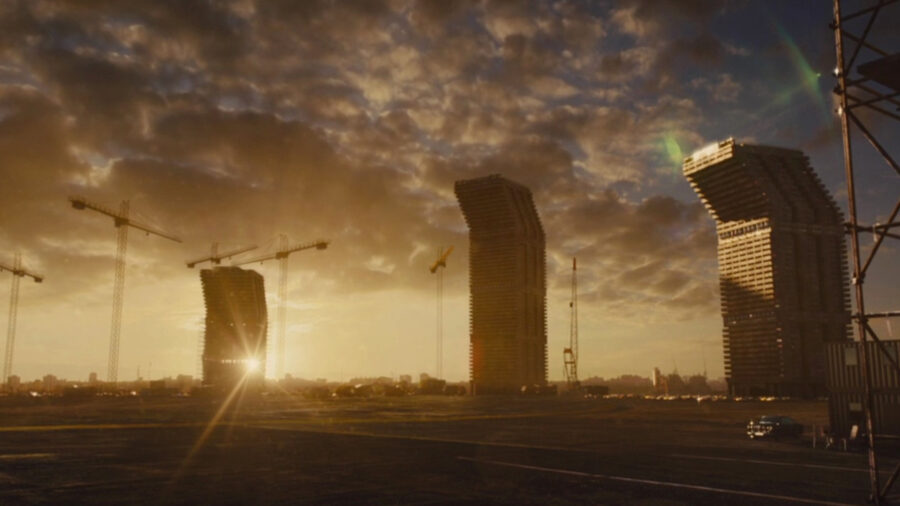
The High-Rise movie sets the story in 1975, the same year that the novel was released. At first, the reasoning for this might seem like a chance to indulge in some nostalgic styles like the fashion of the era or overall design aesthetics.
But the line from Ballard’s novel that finds its way into the film’s voiceover very early on is the one that started this video and is key to understanding High-Rise as a movie.
By setting the film in the ‘70s and presenting its story as an example of societal decline, it’s arguing for Ballard’s creative thesis put forth in that brilliant line. The future you have been promised is the one you’re experiencing right now, and it’s already been drained. We’ll come back to this.
It should be said that even though High-Rise is a favorite film of mine, I recognize it’s not going to be a movie for… well, probably most people. This is a movie where a dog is killed and eaten in the first two minutes, and then another dog is murdered by drowning. If I’ve learned anything at all from my decades of watching, writing, and talking about movies, it’s that audiences really don’t like it when puppies die in your movie.
It Only Gets Worse
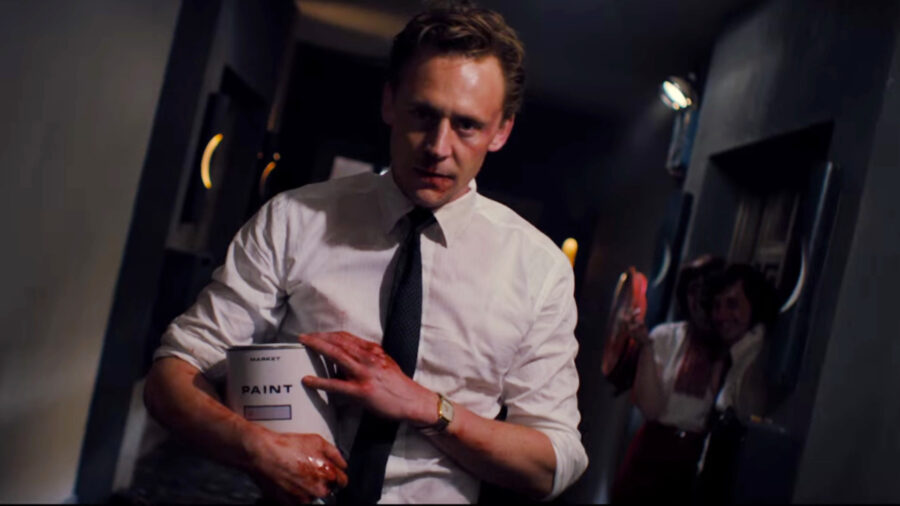
And the rest of the movie isn’t going to be much cheerier. Tom Hiddleston plays Robert Laing and his observations about the building and its people lead to a character that a lot of people are probably going to dislike. Laing is a cold man looking for what might lead to some real human connection, but he also plays a dark prank on a boorish rich kid from the building that leads to a horrific suicide.
Laing’s journey and philosophy then becomes very passive as the building descends into chaos and anarchy. It’s the kind of character that probably functions better in written form, but I think Hiddleston gives one of his most layered performances in High-Rise.
This is also a movie with a very niche sense of humor. Like I mentioned, that whole “eating a dog” bit in the beginning comes from Ballard’s first line of the novel, and it is meant to be a bit of dark comedy. A similar example is when Laing sits down for dinner with the architect of the building, Anthony Royal (played by Jeremy Irons), who asks Laing for his thoughts about the building as someone is screaming in the background.
When viewed from that angle, there is plenty of pitch black absurdity that I love in High-Rise, especially Luke Evans as Richard Wilder, one of the building tenants who, as his name tells you, succumbs to his wildest impulses and behavior. Evans is unhinged, hurling spit and going total goblin mode. It’s ridiculous and tragic in equal measure.

But, High-Rise is not factory-packaged in its presentation. The score from Clint Mansell is appropriately psychotic, jumping from regal bombast to childlike whimsy at a moment’s notice and is not the kind of musical experience made to make the audience feel comfortable.
The overall look of the film is exceptionally polished but the dreamy edit is not something mainstream audiences are going to click with. I love it as it emphasizes the idyllic dreams of progress and comfort slowly being consumed by the inherent nightmares of the human condition.
And it means we get a sequence set to a Portishead cover of ABBA’s “SOS” which is one of the best things of the last decade.
I could talk about High-Rise for hours but one of the reasons I wanted to do a video on it is the hope that at least one person will discover High-Rise because they saw this video. So, I don’t want to pick apart everything in the movie.
But, the other reason I felt High-Rise deserved highlighting is because I see a lot of people starting to experience what High-Rise was talking about back in 2016.
The Rich And The Rest Of Us

It feels like we are in the midst of a large cultural awareness about the stark division between the haves and have-nots. So many of us are realizing that The Future we were sold was never going to be possible. It was someone’s dream that had already happened and is now exhausted.
At the end of High-Rise, Laing has found happiness. It’s in realizing that the social construct created by the post-apocalyptic society of the high-rise is likely the best reflection of humanity in all its animal nature. And he’s waiting for the other high-rise nearby to find the same descent into barbaric bliss.
It’s not an optimistic ending, it’s a bleakly comic one, but one that I can’t help feeling some dark truth in. So many people seem to be waiting for the powder keg of society to blow up, and a lot of that sentiment comes back to wanting the higher class to feel the same turmoil the rest of us are experiencing.
High-Rise is pretty explicit in its metaphorical takedown of capitalistic society, especially at the very end with a kid character listening to a broadcast by Margaret Thatcher, and I think a lot more people now would vibe with the movie’s mentality about capitalism’s inherent dissonance with human nature.
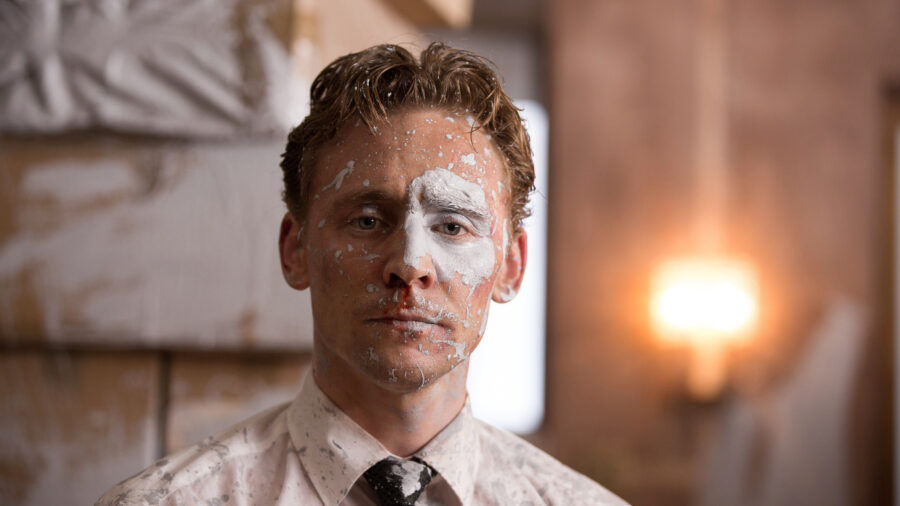
I hope the world doesn’t end up reflecting High-Rise but I am brushing up on my dog recipes just in case.

Leave a Reply